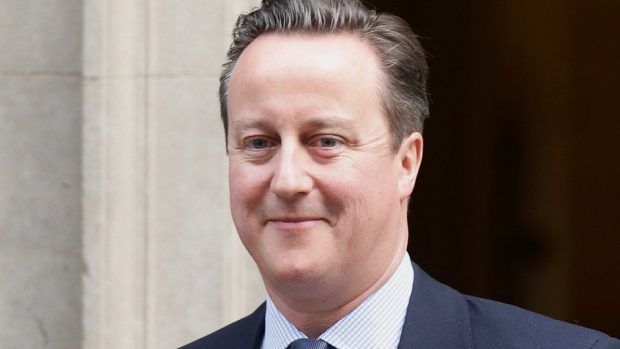David Cameron has insisted Britain can enjoy the “best of both worlds” as a member of a reformed EU.
The prime minister said remaining part of the union was about advancing joint prosperity, not being “sucked into a European superstate”.
He told MPs the question was not about whether the UK could survive outside of the EU, but how it could be most successful.
The Tory leader was making a statement to the House of Commons on the draft deal published by European Council President Donald Tusk yesterday after intensive negotiations.
It sets out plans for an “emergency brake” on benefits for migrant workers, as well as measures to give national parliaments more power to block EU laws.
The proposals pave the way for an in/out referendum in June, but they must first be agreed by all 27 other national leaders at a crunch Brussels summit on February 18-19.
Mr Cameron, who was criticised for not addressing the House yesterday, said: “The question is not could Britain survive outside the EU, it’s how will we be most successful and most prosperous?
“How will we create the most jobs? How will we have the most influence on the laws that shape the global economy?
“Britain really can have the best of both worlds.”
Labour leader Jeremy Corbyn, who said his party is “committed to keeping the UK in the EU”, characterised Mr Cameron’s negotiation as a “Tory party drama” that had played out entirely as expected.
He accused the PM of pursuing the “wrong goals in the wrong way”, adding: “The prime minister has ended up exactly where he knew he would be.”
Mr Corbyn also called for workers’ rights to be further strengthened within the EU and decision-making to be made more accountable.
And he asked Mr Cameron to confirm June 23 as the date for the referendum so the process of campaigning could begin in earnest.
The Tory leader did not formally do so, denying a date had yet been set.
But he repeatedly indicated it would be six weeks after the Holyrood elections.
SNP Westminster leader Angus Robertson told the PM to “stop pretending” he had secured a major victory.
He also urged Mr Cameron to commit to deferring the referendum beyond June out of respect for the electorates in Scotland, Wales and Northern Ireland.
Mr Cameron replied: “I think the best thing to do is to get the deal done and hold a referendum”.
The Tusk blueprint proposes an emergency welfare brake allowing national governments to impose a four-year restriction on new EU migrants claiming in-work benefits, if the number of incomers is imposing a strain on their public services and welfare system.
It leaves open, however, the question of how long the constraint can remain in place, and what period it may be extended for if the problems persist.
It also sets out that migrant workers should be allowed to have benefits phased in over the four-year period, rather than facing an outright ban.
And it states host nations should continue to pay benefits to migrant workers for children in their home country, but adds countries such as the UK should be given the right to cut payments to a level in line with the standard of living in the country where the child lives.
The approval of national leaders meeting in the European Council would be required for the brake to be applied. In a key concession to Mr Cameron, a draft commission statement attached to the deal document states the UK is already in the kind of “exceptional situation” which would allow it to trigger the brake immediately.
